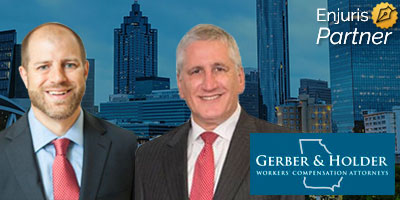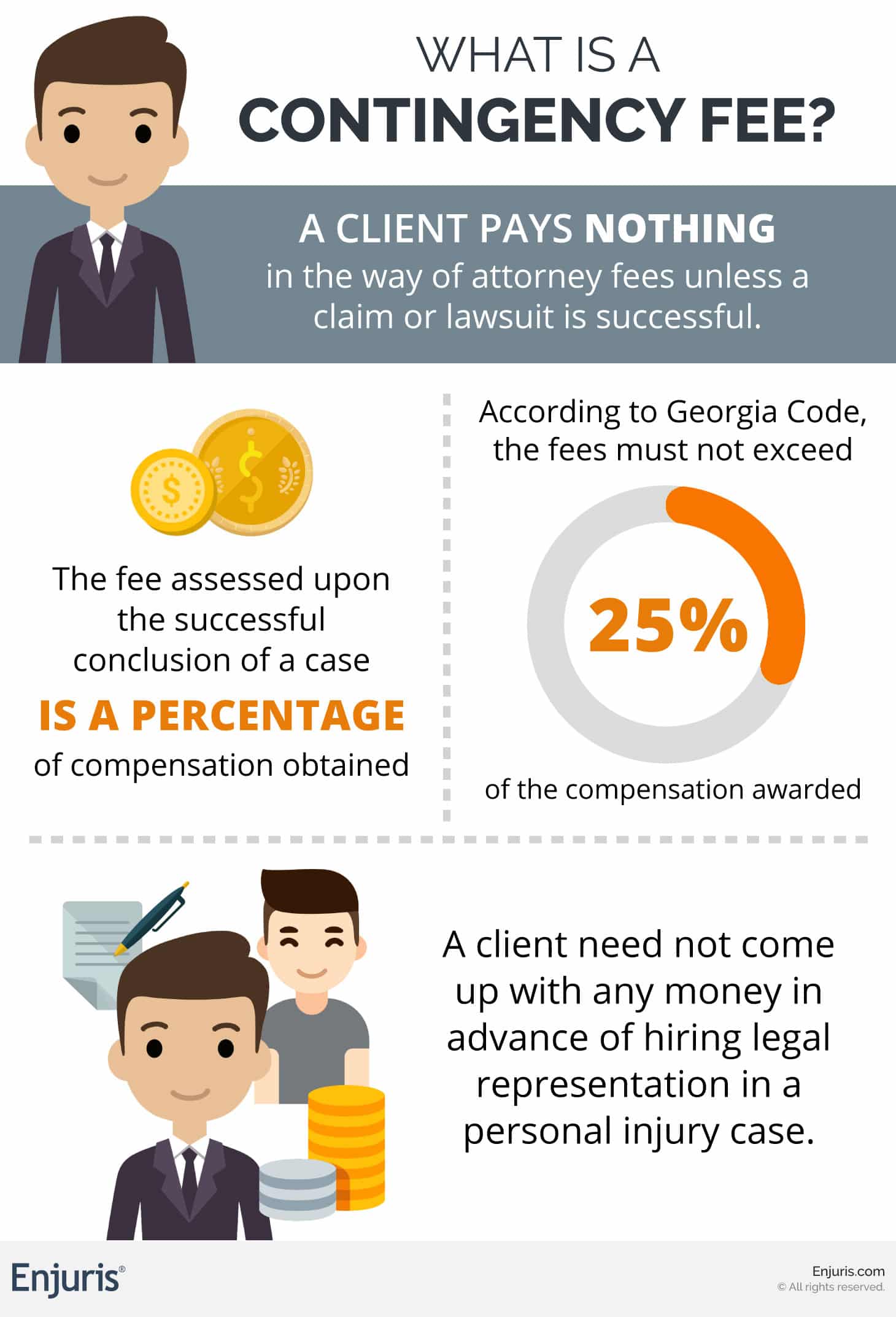7 steps of the workers' compensation claim process
Step 1: Initial consultation
Meeting your attorney for the first time
If you're considering meeting with a workers' compensation attorney, chances are your workers' compensation claim was denied, your benefits are delayed, or you're experiencing some other issue receiving the benefits you deserve.
We offer free initial consultations:
- Over the telephone (678-515-9823)
- In person
While I can't speak to how other firms handle initial consultations, know that if you consult our law firm, there are no strings attached, and it's 100% free — all that's required is your time and attention.
If you choose to meet us in person, we have three offices in Georgia.
Atlanta office

16 Lenox Pointe NE
Atlanta, GA 30324
8:30am – 6pm weekdays
9am – 5pm Sat
Closed Sunday
Athens office
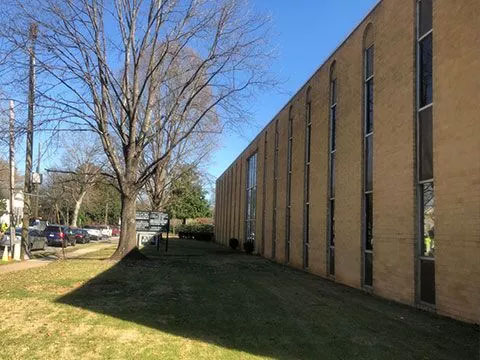
337 S Milledge Ave, Suite 209-7
Athens, GA 30605
8:30am – 5pm weekdays
Closed Saturday and Sunday
Columbus office
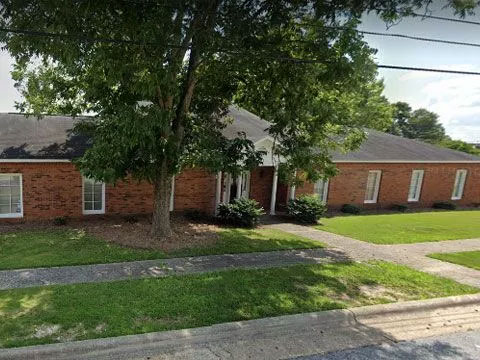
1340 14th St
Columbus, GA 31901
Upon arriving at one of our offices, someone from our team will lead you to a private conference room where you'll meet with one of our attorneys. Our conference rooms are equipped with wi-fi in case you need to access a document on your mobile device.
Preparing for your initial consultation
Be prepared to answer basic questions about your claim during your initial consultation. We find that some clients get nervous during the initial consultation and forget certain details. For this reason, we recommend writing down the basics before your initial consultation. For example:
- When were you hired?
- How and when did your injury happen?
- How and when did you notify your employer about the injury?
- When and where did you first seek medical treatment?
- What medical treatment have you received since your accident?
It's a good idea to bring documentation regarding your work injury and your workers' compensation claim to the initial consultation. Examples of documents we like to see during an initial consultation include:
- Medical records
- Photos of your injuries
- Any correspondence with your employer and insurer about your injury or claim
- Any workplace accident report
We've created a checklist to help you prepare for your initial consultation:
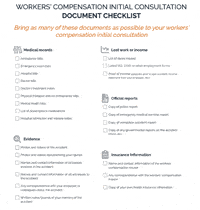
A worksheet to prepare for your first meeting with a workers’ compensation attorney--what to bring and what they’ll ask
Download in PDF format
Common questions answered during an initial consultation
Every initial consultation is a little bit different. But at the end of your initial consultation, you should have enough information to determine the following:
- Whether you have a valid claim. Your initial consultation will include a discussion of the facts and potential legal claims surrounding your issue. We will be able to tell you, based on the law and the information you provide, whether you have a legitimate case from a legal standpoint.
- Whether you need a lawyer. We'll shoot straight with you. If we're not the right law firm for you or we think you'd be better off resolving the case on your own, we'll let you know.
- What our services will cost. Your initial consultation will include a discussion of the fees that we charge.
- What comes next? If you choose to hire us, we'll make sure you understand the next steps that will be taken in your case. We want you to leave the initial consultation knowing that things are on the right track.
Here's our attorney Ben Gerber to answer that question:
Representation agreement
If you decide you want to hire us at the end of your initial consultation, we'll provide you with a representation agreement. You can sign the agreement at the initial consultation, or you can take it home to review it and sign it when you're ready.
The representation agreement will cover a number of topics, including:
- The scope of the work to be performed
- Who will perform the work
- The fee arrangement
- How to terminate the attorney-client relationship
Potential clients often see the term "contingency fee" in our representation agreement and want to know what it means.
As you may recall from Ben Gerber's video explanation in the preceding section, a contingency fee is a fee for services provided where the fee is payable only if there is a favorable result. In other words, if you're not awarded compensation, you don't owe us a penny.
Once the representation agreement is signed by you and the attorney, an attorney-client relationship is formed.
Step 2: Gather and develop evidence
Georgia's workers' compensation system is a no-fault system. This means it's not necessary to prove that your employer's negligence caused your accident in order to receive benefits.
However, you must prove that your injury arose out of and in the course of your employment.
The phrase "arose out of and in the course of" means that there must be some causal connection between the conditions under which you worked and the injury you suffered. To put it another way, your injury must be a risk of your employment that a reasonable person could have foreseen due to the nature of your work.
It's not uncommon for an employer or insurance company to deny that a worker's injury arose out of and in the course of their employment. For example, your employer may claim that your injury occurred while you were on a scheduled break.
Shortly after an initial consultation, the Gerber & Holder attorney handling your case will, among other things, begin gathering and developing evidence to support the claim that your injury is compensable.
This evidence may include:
- Injury reports
- Witness statements
- Medical records
- Security footage
- Internal employer communications
Your attorney will also begin gathering and developing evidence to support the seriousness of your alleged injuries, as well as any other evidence necessary to support your claim and get you the benefits you deserve.

Sample accident journal/diary to help you document the effect on your daily life
Download in PDF format
Step 3: Negotiate a settlement agreement
Depending on the nature of your case, it may make sense to reach an agreement to settle your claim outside of court.
Here's our attorney Natalie Elkins to answer this commonly asked question:
You can file and negotiate a workers' compensation claim in Georgia without an attorney. But remember that workers' compensation insurers typically have one or more attorneys working for them. Those attorneys are skilled negotiators; their job is to get the best deal for their client (not you).
All settlements in Georgia must be approved by the State Board of Workers' Compensation. The Board will make sure the settlement complies with certain rules, but the Board won't review the entire case and make sure the settlement is in your best interest.
Once you sign a settlement agreement and it's approved by the Board, there's no going back. You will receive a lump sum (typically within 20 days of receiving the notice of approval), and you will have waived your right to file any future claims or lawsuits. In other words, if you later realize that your injuries are worse than you initially thought and you need additional medical treatment, you won't be able to file a new workers' compensation claim.
Our attorney Tom Holder answers this and other common questions about settlement agreements:
Step 4: Workers' compensation hearing
If your workers' compensation claim isn't resolved through an out-of-court settlement, a hearing can be requested by filing a WC-14 Request for Hearing.
In Georgia, the Alternative Dispute Resolution Division screens hearing requests to identify cases that may be resolved through the mediation process without a hearing. Accordingly, you may be required to attempt mediation before proceeding to a hearing.
Pre-hearing mediation
Mediation is a chance for both parties to resolve the claim without involving a judge. Typically, the injured worker and their attorney attend, along with a representative from the insurance company. A neutral third party (called a "mediator") facilitates the discussion with an eye toward resolving the claim.
Every mediator has their own style, but it's common for the mediator to encourage an opening statement where both sides present their position to each other.
After the opening statement, the parties enter separate rooms, and the mediator travels back and forth, relaying messages to each party. Sometimes numbers are exchanged, and sometimes information is exchanged in an attempt to reach a number to settle the case.
There are two things you should understand about mediation:
- Anything said during mediation cannot be used as evidence against either party. Many times during mediation, one side concedes a set of facts for the purpose of obtaining a settlement. However, if no settlement is reached, those facts are once again in dispute if the side conceding them so chooses.
- The mediator is a neutral party and is prohibited from taking sides or forcing either side to settle. The mediator's job is to facilitate discussions between the parties. The mediator's goal is to achieve a resolution that both sides can agree with. Remember, if either side is not happy with the proposed settlement, they can walk away, as mediation is voluntary and non-binding.
If the mediation is unsuccessful, the parties will proceed to a hearing.
Discovery
Although some pre-hearing discovery may have already taken place, full-blown discovery can take place once a hearing is requested by filing form WC-14.
Discovery allows each side to obtain information from the other side. The discovery process is what prevents surprises. Each side must reveal who and what they intend to present in the hearing.
Discovery tools include but are not limited to:
- Depositions upon oral examination. A deposition is sworn testimony given prior to the actual hearing. Any witnesses with relevant information to the claim can be deposed, including the parties to the case, witnesses to the accident, and treating physicians.
- Written interrogatories. Interrogatories are like written dispositions; however, the answering party receives the questions and answers them within a specific timeline. Interrogatories are less confrontational than dispositions.
- Request for admission. A request for admission allows one party to request that another party admit or deny the truth of a statement.
- Production of documents. A written notice from one party requesting that the other party produce certain documents.
Try not to be nervous about being deposed. You know all the answers, and if you don't know an answer, it's okay to say so.
If a party refuses to comply with discovery, a motion to compel can be filed. The motion to compel asks the court to require the party to comply and may also ask for attorneys fees and sanctions.
Hearing
The workers' compensation hearing will be scheduled within 60 days of the time Form WC-14 is filed.
The hearing typically takes place in or near the county where the worker was injured.
There are some differences between a workers' compensation hearing and the hearing you're used to seeing on television. To begin with, there are no juries in a workers' compensation hearing. Instead, an Administrative Law Judge presides over the case.
Each administrative law judge is a little bit different. But here is how a typical workers' compensation hearing unfolds:
- Before going on the record, the administrative law judge asks the attorneys to provide a summary of the issues (this may also be discussed during a pre-hearing conference call).
- When the hearing begins, a court reporter will start recording the proceedings. The judge will state the reason for the hearing and identify all of the parties present.
- The party with the burden of proof (typically the injured employee) will present its case first. During this time, you may be examined and cross-examined. You will also have the opportunity to present witnesses that can testify for you (including your doctors).
- The opposing party (typically your employer) will present its case. Just like you, the opposing party can present admissible documents and witnesses as evidence. Your attorney will have a chance to cross-examine any witnesses called.
- Once both sides have presented their case, the administrative law judge will close the record.
Step 5: Decision
Except in rare circumstances, the Administrative Law Judge won't issue a decision on the date of the hearing.
In most cases, a closing argument will be submitted by both parties in the form of a brief after the hearing.
After reviewing the hearing transcript and the briefs and considering all of the evidence, the judge will issue a decision. You'll typically receive the decision within 90 days of the completion of the evidence.
Workers' compensation is a process. It requires a lot of work to develop evidence, get medical treatment, and depose witnesses. Even though [a client] might be completely right, and they should be receiving weekly benefits and medical treatment, it requires a fight. The wheels of justice grind slowly sometimes, but with some patience, we can get the proper result.
Step 6: Appeal
If you're not happy with the administrative law judge's decision, you can appeal to the Appellate Division of the State Board of Workers' Compensation.
An appeal must be filed within 20 days of the administrative law judge's decision.
The appeal to the Appellate Division is limited to a brief only, unless a special request is made for oral argument. If an oral argument is requested by either party, an electronic notice is sent to the parties notifying them of the date of the oral argument.
The Appellate Division can:
- Remand the case back to the administrative law judge for further action,
- Overturn the decision
- Amend the decision, or
- Affirm the award previously issued.
If you're not happy with the Appellate Division's decision, you can file an appeal to the Superior Court in the county where the injury occurred. This appeal must be filed within 20 days of receiving the Appellate Division's decision. The hearing must then be held within 60 days of the date of docketing in the Superior Court; otherwise, the order of the Appellate Division shall be deemed affirmed.
There are only 5 reasons why the Superior Court will overturn a ruling from the Appellate Division:
- The members acted without or in excess of their powers.
- The decision was procured by fraud.
- The facts found by the members do not support the decision.
- There is not sufficient competent evidence in the record to warrant the members making the decision.
- The decision is contrary to the law.
The Superior Court cannot hear from new witnesses. The Superior Court is bound by the facts that have already been put in evidence.
If either party wants to appeal the Superior Court's decision, they can appeal to the Georgia Court of Appeals and, subsequently the Supreme Court of Georgia.
Step 7: Wrapping up your case
When it comes to receiving your payments and wrapping up your case, every case is different. It's not uncommon for checks to be late, which may require the assistance of an attorney.
In the meantime, if you're struggling financially, you may want to contact the Georgia Department of Human Services (DHS) to learn if you qualify to receive assistance through programs like Temporary Assistance for Needy Families (TANF) and the Supplemental Nutrition Assistance Program (SNAPS).
Browse other state personal injury lawyers in our national directory.

